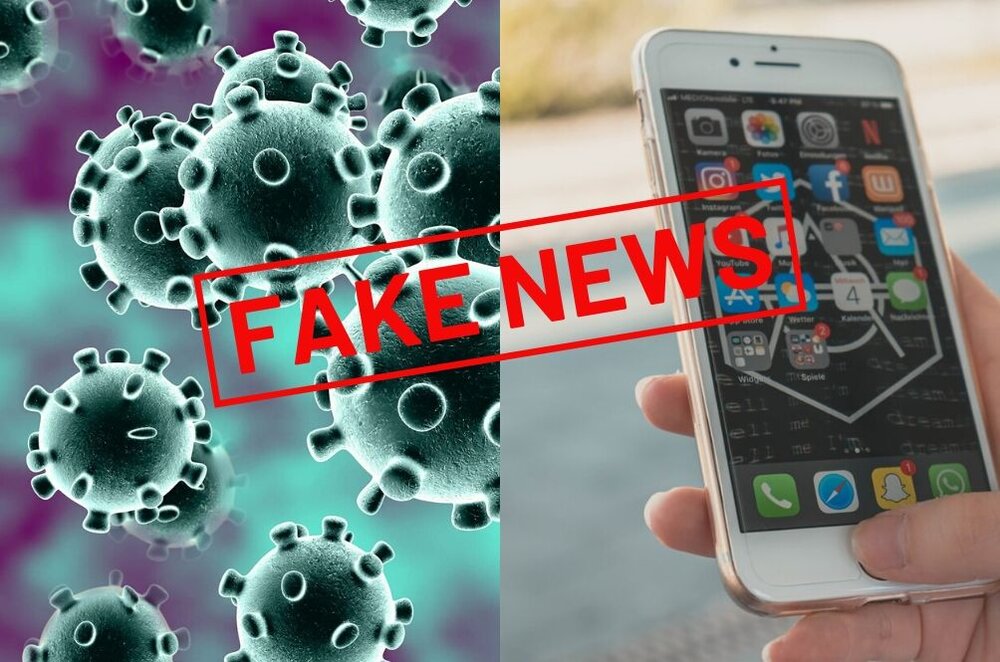Public attempt to control fake news about the coronavirus

TEHRAN - One of the constituent elements of a modern state is sovereignty, means exercising the will and desire of another element, which is state sovereignty.
In the age of the information society and cyberspace, governments are also trying to exercise sovereignty over their people and territory. Therefore, the principle of state sovereignty over the information society and cyberspace originates from the logic of nation-state formation, which all states with different ideologies and methods of governance are trying to apply. Information technology has declined the sovereignty of nation-states by strengthening centrifugal forces, increasing the number of actors in various fields, diversifying national interests, reducing communication costs and networking.
Therefore, all nation-states around the world are faced with the challenges arising from the erosion of political sovereignty over territorial boundaries in the governing arena. However, the extent of this challenge varies depending on the structure of the nation-state and its cultural, historical, and political factors.
One of these challenges is the issue of fake news that has long existed in human history, but in the age of the information society, given the particular features of cyberspace, such as the relative anonymity of disseminators and the high speed of circulation due to networking, has increased its quantity and quality. At the same time, it has become a challenge for communities, especially governments. For example at the Munich Security Conference in 2016 fake news was the only issue that was discussed in the field of cyberspace.
This matter has more devastating impact on governance and ultimately on the people in a critical situation that the demand in the political system is greater than its resources and support.
Spreading fake news about coronavirus is an example of this challenge. The virus was first reported in China in January 2020. Since then, the false statements range from a conspiracy theory that the virus is a man-made bioweapon to the claim that more than 100,000 have died from the disease.
"We need a vaccine against misinformation," said Dr. Mike Ryan, head of the WHO's health emergency program, at a WHO briefing on the virus earlier this month.
China is the world's most populous country has the largest market of Internet users globally: 21% of the world's 3.8 billion Internet users, so fake news can spread quickly online. A 2018 study from Massachusetts Institute of Technology found that "false news spreads more rapidly on the social network Twitter than real news does." The reason, say the researchers, maybe that the untrue statements inspire strong feelings such as fear, disgust, and surprise.
In this regard, the WHO is also collaborating with tech giants like Google, Twitter, Facebook, Pinterest and TikTok to limit the spread of harmful rumors. It's pursuing a similar tactic with Chinese digital companies such as Baidu, Tencent, and Weibo. To counter false news, Google has just begun to display World Health Organization information on the coronavirus in search results.
The Chinese government has been cracking down on virtual private networks (VPN), which are often used to access foreign news sources. In Malaysia, five people have been arrested for spreading fake news about the virus. One post shared on Facebook, falsely claiming to be from a government department, showed a fake picture of the virus and stated that this is an image of one of many ‘Allah’s armies’ sent to attack China in the form of coronavirus.
The Guardian reported that about 40% of people in the UK believe at least one conspiracy theory of some kind, say the researchers from East Anglia University. The figures are even higher in the United States and other parts of the world.
In the age of the global information society and reduced control over the circulation of information, one of the major issues is the attempt to present facts and real images of various events and to counter the spread of fake news.
Increasing media literacy and efforts to build trust between nations and governments around the world are the most important way of thwarting fake news. However, organized cooperation between states and international organizations will also help to curb this challenge globally as all countries and actors in the world will sooner or later face it.
Leave a Comment